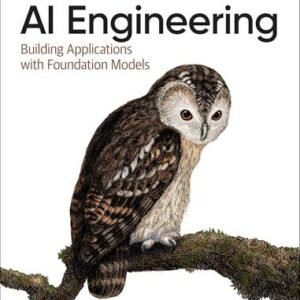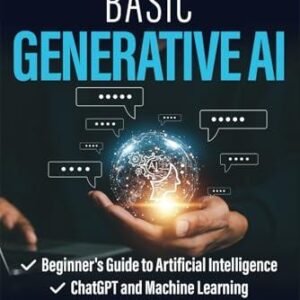In an era where technology is evolving at an unprecedented pace, the healthcare sector stands on the cusp of a monumental transformation. Artificial Intelligence (AI) is not just a buzzword; it’s a powerful catalyst that is redefining the way we approach diagnostics, patient care, and operational efficiency. From streamlining administrative tasks to enabling personalized treatment plans, AI is becoming an indispensable partner for healthcare professionals. As we navigate this digital frontier, it is crucial to explore the revolutionary role of AI in healthcare—how it is reshaping our understanding of patient care, enhancing clinical outcomes, and creating new opportunities for innovation. In this article, we will delve into the various facets of AI-driven technologies and the profound implications they hold for the future of health and well-being. Join us as we uncover how AI is not just changing the game but completely rewriting the rulebook in healthcare.
Table of Contents
- Understanding AIs Impact on Patient Care Quality
- Innovative Applications of AI in Medical Diagnostics
- Enhancing Operational Efficiency Through AI Technology
- Ethical Considerations and Best Practices for AI in Healthcare
- Future Outlook
Understanding AIs Impact on Patient Care Quality
Artificial Intelligence is reshaping the landscape of healthcare by enhancing the quality of patient care in several profound ways. One of the most significant advancements is its ability to analyze vast amounts of data quickly and accurately. This capability allows healthcare providers to make more informed decisions based on real-time information. Key benefits include:
- Personalized Treatment Plans: AI can assess individual patient histories and preferences, allowing for tailored therapies that increase effectiveness.
- Predictive Analytics: AI systems can predict potential health risks by identifying patterns in patient data, leading to proactive interventions.
- Streamlined Diagnostics: Advanced algorithms can assist in interpreting medical images or lab results, reducing diagnostic errors and expediting treatment.
Moreover, integrating AI in healthcare settings fosters collaboration among multidisciplinary teams by providing shared insights and communication tools. The use of AI-powered platforms facilitates seamless interaction, ensuring all professionals involved in a patient’s care are aligned. This synergy enhances outcomes through:
- Improved Workflow Efficiency: Automating administrative tasks such as scheduling and record-keeping frees up valuable time for healthcare providers.
- Enhanced Patient Engagement: AI-driven chatbots and applications empower patients to participate more actively in their care, increasing adherence to treatment protocols.
- Data-Driven Decision Making: Professionals can leverage analytics to base clinical decisions on comprehensive data insights, boosting overall quality of care.
Innovative Applications of AI in Medical Diagnostics
Artificial Intelligence is revolutionizing medical diagnostics by enhancing accuracy and speed in disease detection. Machine learning algorithms analyze vast datasets of medical imaging, pathology slides, and patient records to identify patterns that might go unnoticed by human eyes. Through techniques such as deep learning, AI systems can classify images, detect anomalies, and even predict patient outcomes. This ability not only aids in the early diagnosis of diseases like cancer but also reduces the burden on healthcare professionals, allowing them to focus on patient care rather than administrative tasks.
AI’s innovative capabilities are also being harnessed through natural language processing, which transforms unstructured data from clinical notes into actionable insights. This technology enables physicians to extract relevant information swiftly, aiding in diagnostic decision-making. Furthermore, the implementation of AI-powered diagnostic tools in telemedicine platforms is expanding access to quality healthcare, ensuring that patients in remote areas receive timely evaluations. The following table highlights some key applications of AI in medical diagnostics:
| Application | Description | Impact |
|---|---|---|
| Medical Imaging | AI analyzes radiology images for abnormalities. | Increased diagnostic accuracy and speed. |
| Predictive Analytics | Identifies potential health risks based on patient data. | Proactive patient management and prevention. |
| Pathology | Automates slide analysis for faster diagnoses. | Enhanced precision in cancer detection. |
| Telemedicine Integration | Utilizes AI tools for remote patient assessments. | Improved access to healthcare. |
Enhancing Operational Efficiency Through AI Technology
In the rapidly evolving landscape of healthcare, the integration of AI technology is proving to be a game changer in boosting operational efficiency. By employing machine learning algorithms and data analytics, healthcare providers can streamline their workflows, thus enhancing patient outcomes. Key benefits include:
- Improved Diagnosis: AI systems can analyze vast amounts of medical data to assist in early detection and accurate diagnosis.
- Automated Administrative Tasks: Routine tasks such as scheduling appointments and billing can be automated, allowing staff to focus on patient care.
- Optimized Resource Management: AI can analyze utilization patterns, helping facilities manage resources more effectively.
The operational advantages of adopting AI extend beyond immediate efficiencies, contributing to long-term sustainability in healthcare practices. For instance, predictive analytics tools can forecast patient admissions, enabling hospitals to allocate resources more effectively. By leveraging AI-driven insights, organizations can also enhance compliance with regulatory standards, thereby reducing potential liabilities. Here’s a comparison of traditional versus AI-enhanced operational strategies:
| Aspect | Traditional Approach | AI-Enhanced Approach |
|---|---|---|
| Data Processing | Manual and time-consuming | Automated and real-time |
| Decision-Making | Operators rely on experience | Data-driven insights |
| Patient Follow-Up | Post-visit calls | Automated reminders and check-ins |
Ethical Considerations and Best Practices for AI in Healthcare
As healthcare increasingly embraces artificial intelligence, it is crucial to navigate the ethical landscape that accompanies this transformative technology. Ensuring patient privacy and data security should be paramount, as AI systems often rely on the collection and analysis of vast amounts of sensitive health information. Healthcare organizations must implement robust measures, including encryption, anonymization, and stringent access controls, to protect patient confidentiality while harnessing AI capabilities. Additionally, bias in AI algorithms poses a significant risk, potentially leading to unequal treatment outcomes. Strategies to mitigate bias are essential and can include using diverse training datasets and conducting regular audits of AI systems for fairness.
Moreover, transparency and explainability are vital components in fostering trust between patients and healthcare providers. Stakeholders must prioritize the development of AI solutions that offer clear and understandable outcomes, empowering clinicians to make informed decisions. Establishing ethical governance frameworks can guide the development and deployment of AI technologies, promoting collaboration among technologists, clinicians, and ethicists. To facilitate these discussions, healthcare organizations might consider the following best practices:
- Stakeholder Engagement: Include diverse voices in the development process to ensure comprehensive perspectives.
- Regulatory Compliance: Adhere to local and international laws governing healthcare and data protection.
- Continuous Monitoring: Implement systems for ongoing evaluation of AI performance and impact on patient care.
Future Outlook
As we stand at the cusp of a new era in healthcare, it’s clear that artificial intelligence is not just a fleeting trend, but a transformative force that has the potential to reshape every facet of the industry. From streamlining administrative tasks to enhancing personalized patient care, AI is redefining what is possible in healthcare delivery. As we continue to integrate these advanced technologies into our systems, it is essential for stakeholders—providers, patients, policymakers, and technologists—to collaborate and navigate the ethical and practical implications together.
The journey towards a fully integrated AI healthcare system will undoubtedly present challenges, but it also promises remarkable opportunities for innovation and improved patient outcomes. Staying informed and engaged in this dialog is crucial as we continue to explore the multifaceted benefits and responsibilities that come with AI in healthcare.
the successful transformation of healthcare through AI will depend on our commitment to harnessing these advancements responsibly and equitably. Let’s embrace this revolution with open minds and a shared vision for a healthier, more efficient future for all. Thank you for joining us on this exploration of AI’s revolutionary role in healthcare. We look forward to seeing how these technologies will continue to evolve and improve lives around the globe.





